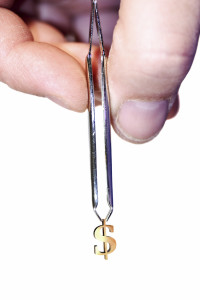 Sticking with this site’s overall theme – when it may not be worth it to hire a lawyer – a common complaint we hear is that lawyers charge to much; this case is just a “small” case. Exactly.
Sticking with this site’s overall theme – when it may not be worth it to hire a lawyer – a common complaint we hear is that lawyers charge to much; this case is just a “small” case. Exactly.
Let’s say someone owes you $2,000. You want to sue them to try to get a judgment so that you can then try to collect this amount from them. What needs to happen?
If you hire a lawyer, he has to review the contract/documents/agreements or get an understanding of why this person or company owes you money. He has to find out where this person or company is located in order to file the suit in the correct venue and have them properly served. He has to prepare the lawsuit, file it, serve it, send discovery requests (maybe), and attend a hearing or trial. Even assuming that we’re keeping everything in Magistrate Court (small claims court), those steps have to be followed whether your claim is for $2k or $15k. It literally makes no difference. Accordingly, the lawyer is probably going to charge approximately the same amount for doing the same amount of work. If not, the attorney is probably more willing to take the case on a contingency (you only pay if he gets you some money) if the case is larger. If an attorney works on a 30% contingency, then your $2k case is only worth about $700 for him, which is likely not enough, considering how much work will go into it.
The same holds true with many criminal cases. Yes, your speeding ticket fine is “only” $125. The attorney, however, knows that he still has to file an entry to appearance and discovery requests, appear at multiple court dates, and potentially conduct a trial, including bringing in witnesses, submitting pictures and other evidence, and cross-examining the officers and other witnesses from the state. The same is true whether this is a speeding ticket worth $125 or a misdemeanor marijuana case where you’re facing jail time, fines, probation, and a license suspension. Accordingly, the attorney will likely charge about the same amount for doing the same type of work. (Of course, there are other externalities to consider with criminal cases, as most offenses carry the possibility of a court-appointed lawyer. That is a discussion for another day, though).
Why is this important? Because this all feeds into the fact that, wrong as it may seem, everyone has to make a decision on where their line is between practicality and principle. This is true for the client, and it’s true for the attorney.
For the client: is the dollar amount of the claim, potential fine, or potential consequences worth fighting a legal battle over? If so, is it worth having that fight, plus the cost of hiring a lawyer fight it with you?
For the lawyer: Is the likely payout on the case worth setting aside other business and time to handle?
Only if the answers to all 3 of these questions is “yes,” should the attorney be hired.
